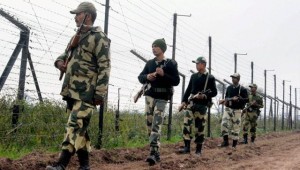In the aftermath of the Pathankot terror attacks, many questions have been raised by defence and security experts on the causes for the attacks and the handling of the attacks. While a lot of focus was on how the security forces should have coordinated the attacks amid allegations that the government handled the situation poorly, the role of the drug mafia in Punjab and how the terrorist probably used that route has not been adequately highlighted.
Drug trade
The Indian state of Punjab, which borders Pakistan, has been facing the brunt of drug cartels and how they are ruining the lives of the youth of the state. According to a report by the security agencies in New Delhi, the terrorists who attacked the air force base in Pathankot used the drug smuggling channels to carry out the attacks.
Allegations of a high profile minister in the Badal government in Punjab patronising the drug cartels are well known. Central security agencies, according to some reports, suspect that drug lords aided and abetted by a section of Punjab police and politicians have been providing logistical support to militants in crossing the border. The border is less than 30km from Pathankot.
Prior intelligence reports have been warning of the probable misuse of the drug smuggling route by terrorists across the border. The Pathankot attack indicates the use of the drug smuggling route by terrorists, with questions arising on how did the terrorists manage to infiltrate 30 kms into India and target a major airbase.
Terror Financing
The Jaish-e-Mohammad (JeM), which is said to be responsible for the attacks on Pathankot, is suspected to be a front of Pakistan’s spy agency ISI. The group gained prominence and support after the Kandahar hijacking in 2000. The major terror groups across the border that target India are known to be backed by strong networks which finance them. From the financial support received by the ‘D’ Company to the ISI and other major financiers in Pakistan and Middle East, the terror groups have been strengthening their cadre and resources to target India. India has been asking Pakistan to crack down on these terror networks, which hasn’t been met with success so far.
At the G20 summit in Turkey in November 2015, India had laid out a 10-point proposal to combat terrorism. One of the major points that India had stressed upon was the need to contain terror financing. India emphasised on the need to deepen cooperation against terrorism financing, including through targeted financial sanctions and more effective counter-terrorism financing tools.
Author Profile
- India Writes Network (www.indiawrites.org) is an emerging think tank and a media-publishing company focused on international affairs & the India Story. Centre for Global India Insights is the research arm of India Writes Network. To subscribe to India and the World, write to editor@indiawrites.org. A venture of TGII Media Private Limited, a leading media, publishing and consultancy company, IWN has carved a niche for balanced and exhaustive reporting and analysis of international affairs. Eminent personalities, politicians, diplomats, authors, strategy gurus and news-makers have contributed to India Writes Network, as also “India and the World,” a magazine focused on global affairs.
Latest entries
 DiplomacyJanuary 5, 2026India walks diplomatic tightrope over US operation in Venezuela
DiplomacyJanuary 5, 2026India walks diplomatic tightrope over US operation in Venezuela India and the WorldNovember 26, 2025G20@20: Africa’s Moment – The Once and Future World Order
India and the WorldNovember 26, 2025G20@20: Africa’s Moment – The Once and Future World Order DiplomacyOctober 4, 2025UNGA Resolution 2758 Must Not Be Distorted, One-China Principle Brooks No Challenge
DiplomacyOctober 4, 2025UNGA Resolution 2758 Must Not Be Distorted, One-China Principle Brooks No Challenge India and the WorldJuly 26, 2025MPs, diplomats laud Operation Sindoor, call for national unity to combat Pakistan-sponsored terror
India and the WorldJuly 26, 2025MPs, diplomats laud Operation Sindoor, call for national unity to combat Pakistan-sponsored terror








